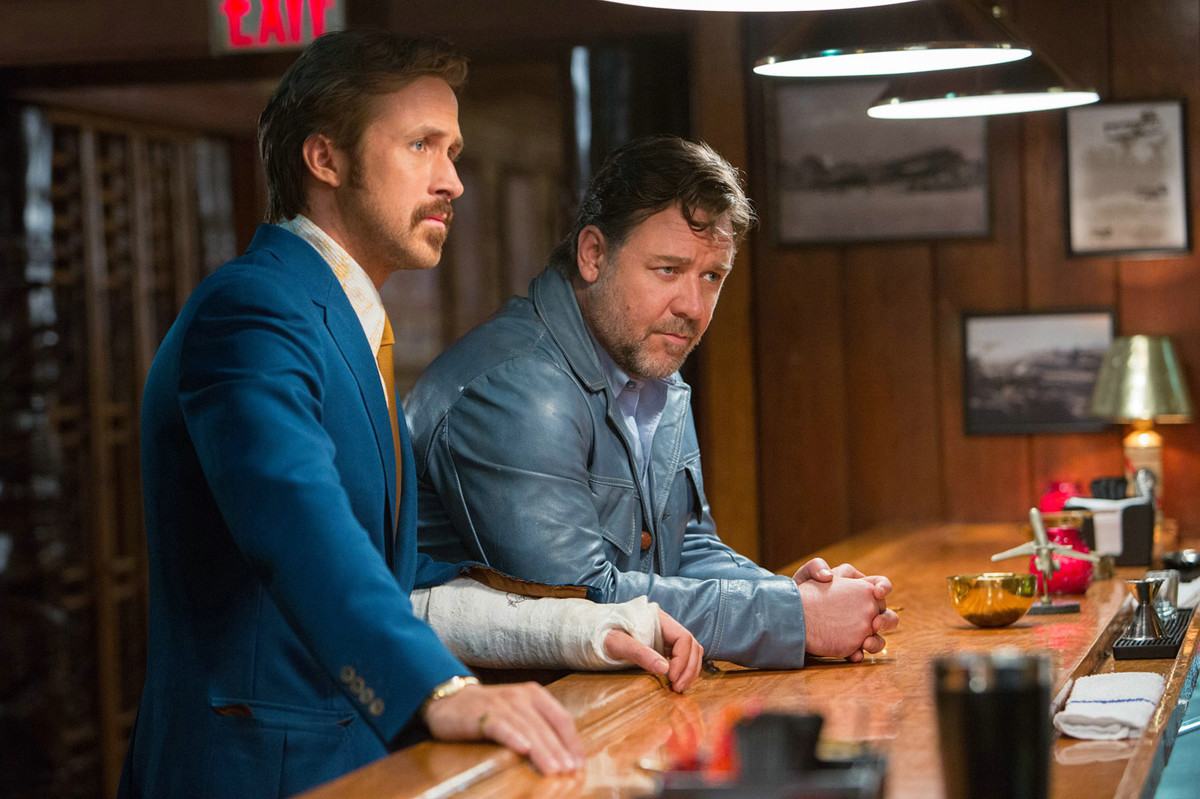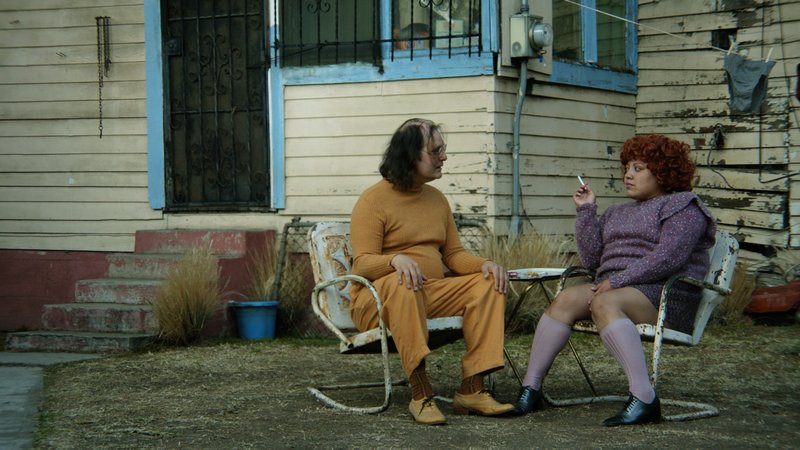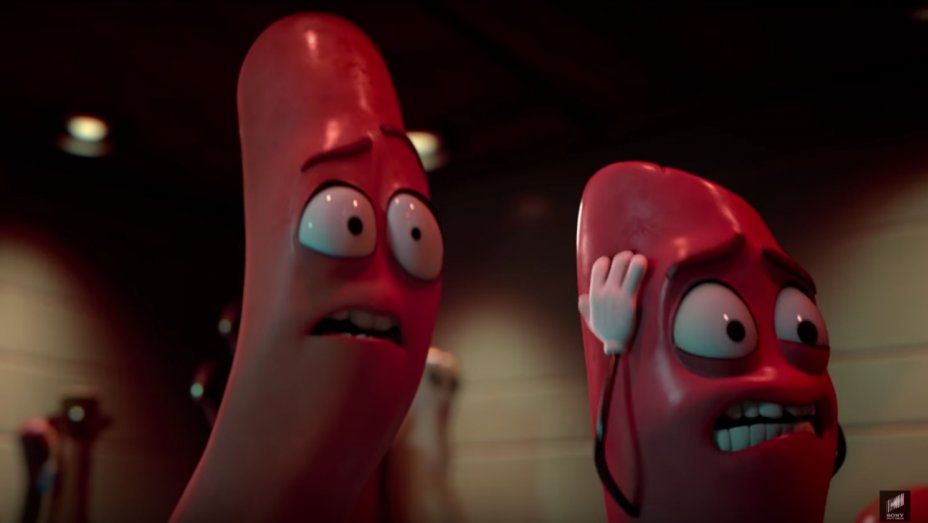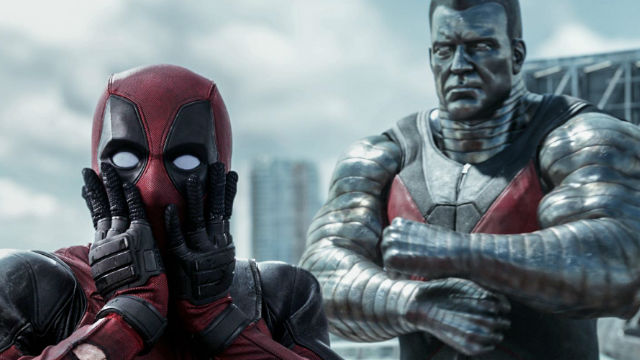5. The Lobster

Many film buffs will find it hard to forget “Dogtooth”, Yorgos Lanthimos’ unforgiving portrayal of extreme parenting. You wouldn’t expect his name to be mentioned on a list of the funniest comedies of the year, but here he is with 2016’s “The Lobster”. Knowing the disturbing grounds of which the director is capable of treading, one shouldn’t expect a lighthearted film from him. “The Lobster” is an extremely dark comedy with a cold streak of nihilism that is bound to make any viewer uncomfortable.
The high-concept film entails a dystopian nightmare where single people are turned into animals if they don’t find a proper romantic mate in a certain amount of time. Colin Farrell plays the polar opposite of his usual roles; here, he’s the schlubby David who is sent off to The Hotel, where he needs to find a romantic partner in 45 days or else he is turned into an animal of his choosing.
In this case, he chooses a lobster, which, according to the Hotel manager (Olivia Colman), is an ”excellent choice”. The film brilliantly parodies the conventions of romance, condemning Hollywood’s simplistic view on courtship. The funniest scenes in the film are the way people haplessly interact with each other, desperate to find that one thing they have in common while human chemistry is naturally far more complicated than this.
The film’s third act is the weakest point, though it does take the film into an interesting yet not fully satisfying turn. Lanthimos takes the film into unpredictable places, and the dark comedy is fraught with tragedy and even shocking violence. The ending might divide some viewers, making them question their own beliefs of humanity; whether we are capable of great sacrifice for our loved ones, or that we are merely selfish animals at heart.
4. The Nice Guys

The buddy-comedy concept is one of those things that will never go out of style. The most important thing is the chemistry between the two leads; no matter how promising the script and its actors may be, you have to have chemistry or else you have no heart, and if you have no heart, then the buddy concept itself is lost.
Shane Black has penned a few of the greatest examples of this genre, with “Lethal Weapon”, “The Last Boy Scout” and the highly underrated “Kiss Kiss Bang Bang”. These three films all have that sense of lone wolf / anti-hero machismo, remnant of the glorious 70s.
“The Nice Guys” utilizes this 70’s grit, but also infuses loads of comedy that completely undermines the infinite coolness that the characters think they possess. The film is even set in the 70s, and stars Russell Crowe and Ryan Gosling as two private eyes who get caught in a conspiracy.
The story, like “Kiss Kiss Bang Bang”, is rather complicated and of lesser importance, since it’s the banter between the two leads that makes this film. Gosling, who has of late been doing more comedy, is a hilarious revelation and delivers most of the film’s laughs.
With Black being so familiar with the action/comedy trope, he sometimes spoofs the genre, turning its many conventions on their head; it’s almost as if these characters have watched too many of these films and try to act the same way, and failing miserably when reality comes back to bite them in the ass.
The violence of the film is sometimes necessarily hard-edged. Victims are involved in the crossfire, giving the story real importance and urgency, and in turn, it makes these unlikely heroes even more heroic in the end.
What makes this film work so well is that Black obviously loves the genre. He gives it the edge that has been sorely missing with the many formulaic examples of its genre, and best of all, Crowe and Gosling have excellent chemistry.
3. The Greasy Strangler

Probably the most controversial entry on this list, “The Greasy Strangler” is the ultimate example of “acquired taste” or even more appropriately, “bad taste”. There are those who will see this and will immediately set up a lifelong vendetta against the filmmakers for wasting their time (and ruining their favorite greasy meals). Some will consider this a godsend; it’s an anarchic cure against your Hollywood-styled film.
Yes, it’s about the relationship between a father and a son who desperately want to connect with one another. It sounds typical, and cineasts have seen variations of such a theme before. Yet the father character in this film lowers himself into a vat of grease and then goes out into the night to strangle people and eat their eyeballs. Yeah, that’s not something you see every day.
Sure, there’s a love story in there; the promise of independence and happiness in the arms of someone else. But then you have two very unattractive (well, tastes differ) people dancing naked hollering ”Hootie-Tootie, Disco cutie!”, which they repeat several times until it becomes hilariously awkward. Fans of Troma will love this film; if only all Troma films could come close to this quality, but they seldom do.
Ben Wheatley served as executive producer, and such a name hovering over any film project is bound to give it more respectability. This is undoubtedly a future cult classic, and though it will not spark a religion like “The Big Lebowski”, fans will surely quote this film for decades to come.
If you are able to stomach this gross-out spectacle, you’re in for a treat. Be warned: it’s going to ruin your appetite. But no matter how disgusting this film is, there’s a delicious method to this madness that will keep you wanting more.
2. Sausage Party

If 2016 proved anything to the current state of cinema, it’s that audiences are ready for a little more diversity; not too much mind you, just a little edge to their popcorn fluff.
“Deadpool” proved that audiences were more than ready for an R-rated superhero flick, and in the animation department, Sausage Party made it clear that audiences were ready for something a little different than your average Disney adventure. And while “Sausage Party” wasn’t the most successful animated movie of the year, it is certainly the most successful R-rated animation film and that’s saying something.
Naturally, as “Deadpool” wasn’t the first R-rated superhero film, “Sausage Party” wasn’t the first R-rated animated film (as anyone who knows a certain raunchy cat knows very well), but it might be one of the most deserving to be on this list, among other hilarious politically incorrect films from the minds of Trey Parker and Matt Stone.
One of the first things to state is that the film is more than just a raunchy animated movie. Yes, since Evan Goldberg and Seth Rogen had a hand in the script, the anthropomorphic creatures will inevitably smoke weed, but the edginess of this film is not the language nor the bursts of shockingly humorous violence, or even the gang-bang at the end; it’s how the film goes with its themes and messages that is the most surprising.
When the food store items realize there is no ”great beyond”, one could see the jabs at religion coming a mile away. However, the film takes a surprisingly existential turn, going far deeper into the controversial subject of religion; how it gets spun to condone genocide, why people would rather dream than open their eyes, the need for delusion in order to have purpose.
One only has to look at one of the key subplots: the rivalry between a Jewish bagel (voiced in a perfect Woody Allen imitation by Edward Norton) and a Middle-Eastern lavash (David Krumholtz), who keep musing about how the other one stole their land. It’s not hard to see what they are referencing here, but that they dared to go that far is commendable.
To say that the film takes on these issues maturely is debatable, but the creators proved that aside from being hilariously offensive, they had something to say as well.
1. Deadpool

“Deadpool” might have seemed like a huge gamble for the studio, but it was a film that fans have been awaiting for years. It’s still a miracle that this film actually came out. Who knew that a studio who had butchered the character to such a degree in “X-Men Origins: Wolverine” would be able to do the character right? This has to be one of the most loyal adaptations of its genre, both in content but especially in tone. The creators of the film certainly understood the spirit of the character.
Naturally, they didn’t pour as much money into this as you would do an X-Men or Marvel movie, but the film didn’t need it. The smaller scale was just what the film needed. It went all out anyway, as if it was the last chance the character was ever going to get (and luckily, we are getting at least two sequels).
The marketing campaign had been one of the greatest, and a large, if not the largest, gratitude has to go to Ryan Reynolds’ dedication to the character. In one of the most memorable online sketches, Mario Lopez interviewed Ryan Reynolds about the decision to make the film PG-13.
Reynolds tried to justify this, but as he did, Deadpool appeared behind Lopez and knocked him out. It turned to be an April Fool’s Day prank, and with it, it firmly announced that the film was going to be R-rated. Other hilarious skits would entail Deadpool’s escapades on Halloween, and who could forget the two different trailers – one PG-rated, one R-rated – where after the end, Deadpool himself (in his own comedic fashion), would implore you to watch the other trailer.
“Deadpool” is, without a doubt, the most fun and freshest superhero flick of the year (especially compared to a few dreary DC titles). Not only is it hilarious, it even has a romantic subplot that works. It’s the film all the fans have been waiting for. It’s something that seemed so impossible, but here it is. In a year full of disappointing blockbusters and election results, this is a great blessing.
Author Bio: Chris van Dijk is a writer and a self-proclaimed cinematic-connoisseur who started his unhealthy obsession with film at a very young age. He’s famous for being an incredible slob, taking himself way too seriously and getting along brilliantly with anyone who agrees with him.